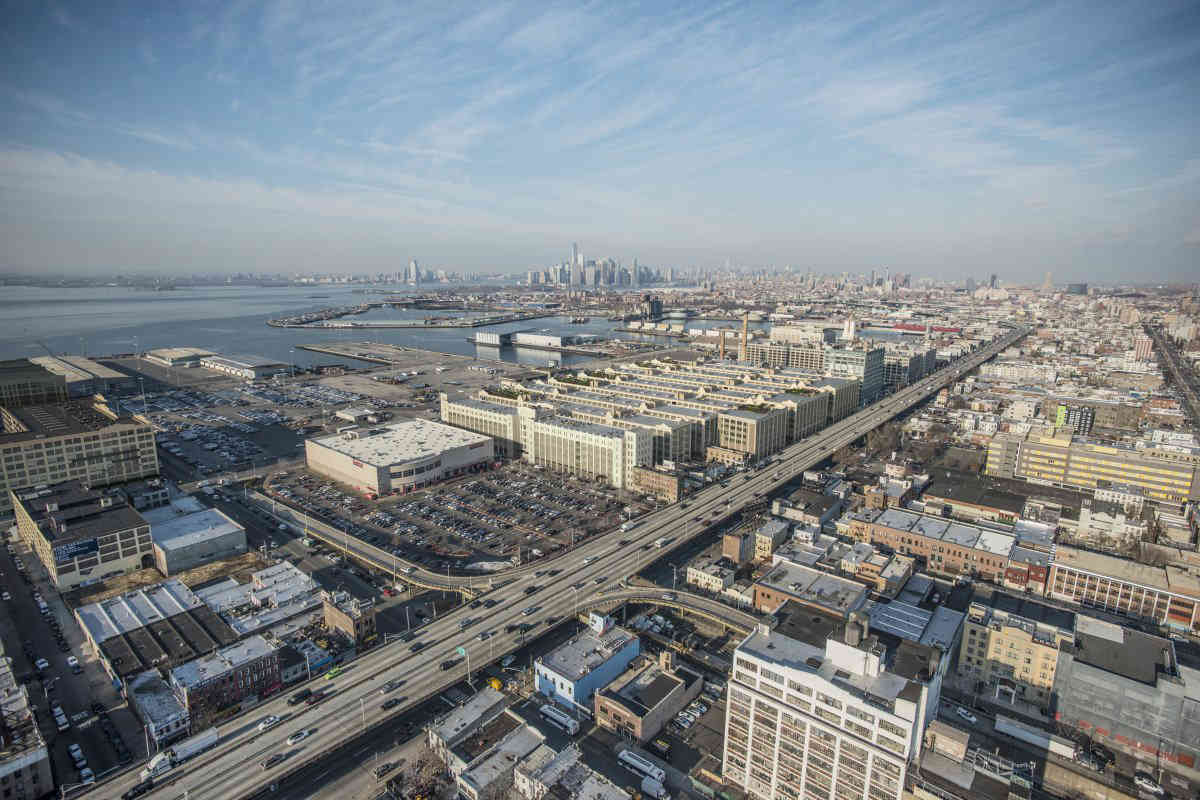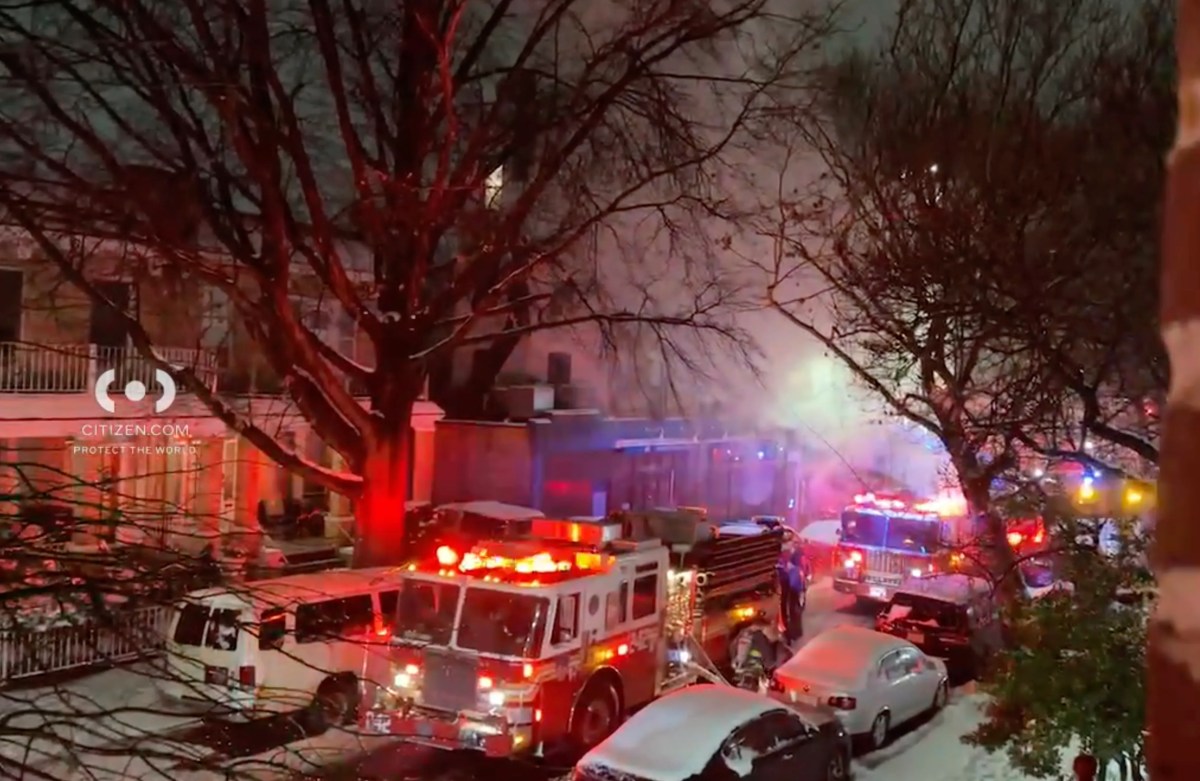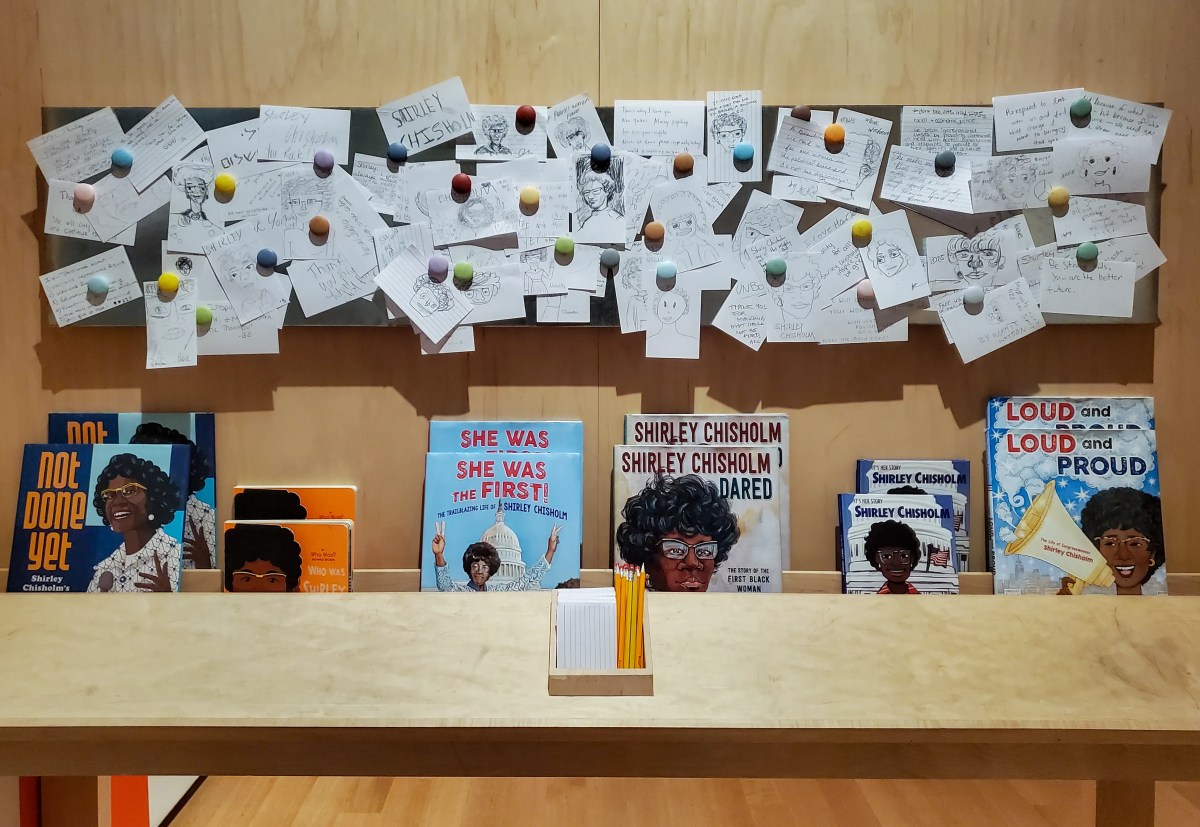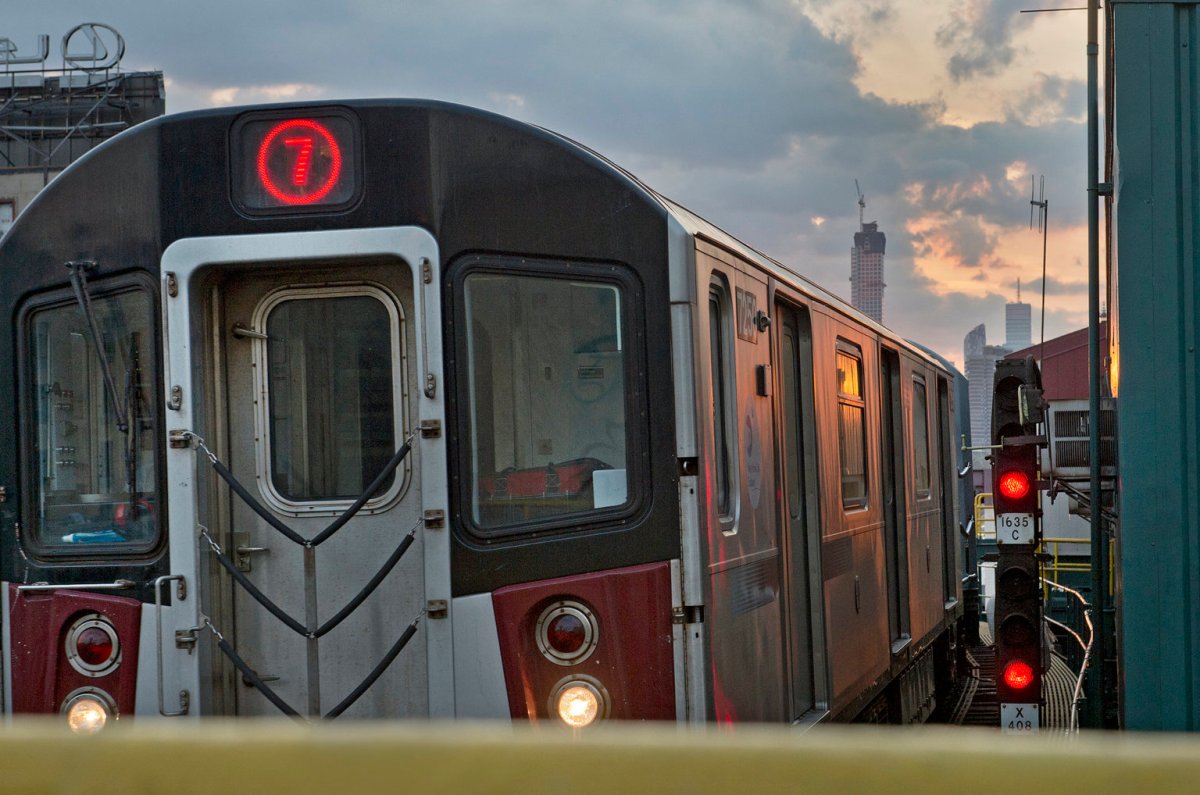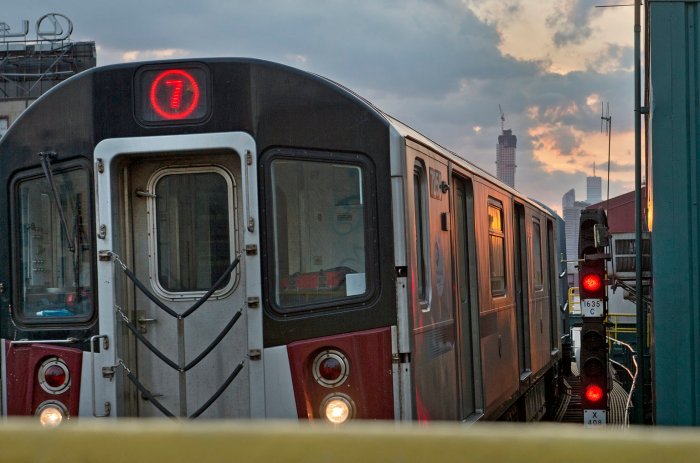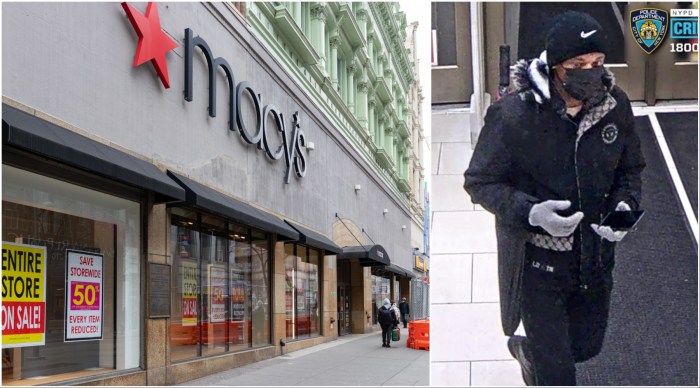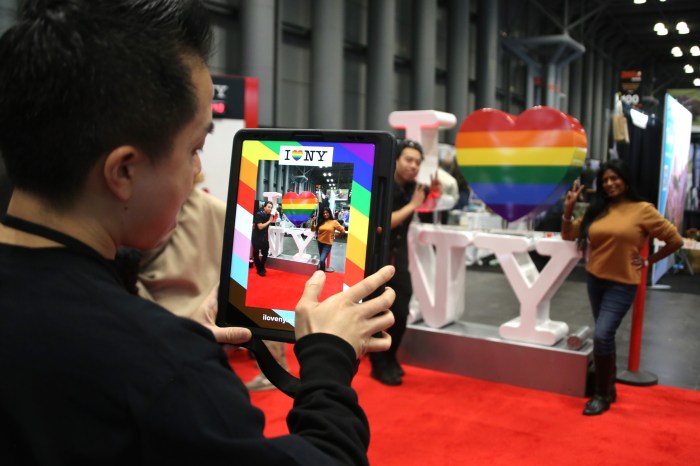Now that the owners of Sunset Park’s Industry City have officially killed their proposal to rezone the massive waterfront complex, local leaders say the path is clear for a new, community-led proposal for Sunset Park’s industrial waterfront.
“We effectively removed the obstacle from our community development plan that is connected with real jobs,” area Councilman Carlos Menchaca told Brooklyn Paper. “I’m just excited to get back into the room to keep talking.”
If approved, Industry City’s rezoning would have spurred a 12-year, $1 billion renovation of the complex, adding academic space, big box retail, and other uses to the 35-acre campus. Industry City developers claimed that the new space would have created thousands of jobs — but many politicians and activists worried that those jobs would be mostly low-paying, and that the influx of high-end retail would drive up rents.
Industry City chief executive Andrew Kimball pulled the application on Sept. 21 following a letter by local officials denouncing the project, and said that the developers won’t submit another rezoning application for the complex — officially ending the contentious fight for the campus’ redevelopment.
Now, local advocates say they have their own vision for the Sunset Park waterfront, beyond just Industry City.
Space for green manufacturing
For years, Sunset Park groups have pushed for a public rezoning of the neighborhood’s waterfront that would bring more green energy jobs to the historically industrial area, which is mostly zoned for heavy manufacturing.
The waterfront — which stretches from Brooklyn Army Terminal by Bay Ridge to the Hamilton Asphalt Plant by the Gowanus Canal — is currently home to a hodgepodge of factories, city-owned manufacturing and warehousing spaces, light industrial plants, and private developments, such as Industry City. But advocates argue that to best utilize the more than 600 acres of waterfront, the city should create a unified plan.
“Instead of talking about these one-off projects, let’s talk about how to do this more comprehensively and in a more systematic way,” said Sunset Park community board district chairperson, Cesar Zuniga, who is running for Sunset Park’s Council seat in 2021.
One popular plan by the environmentalist group Uprose would transform the waterfront into environmentally-friendly manufacturing. The Grid plan, which has been in the works for several years, would attract clean energy manufacturers and incentivize existing factories to create environmentally-friendly infrastructure — pushing forward the city’s climate change goals, one expert said.
“[It] will realize tens of thousands of clean energy jobs, and these jobs are all part of building and moving our economy away from an economy dependent on fossil fuels,” said Uprose’s Summer Sandoval.
Under the proposal, more than half of Industry City would be slated for industrial uses, with limited retail and office space used only to support the complex’s factories.
In order to realize this plan — which has been created with extensive community input, according to Sandoval — the city would have to rezone the waterfront, with carve outs and specific uses spelled out in the zoning text, she said.
This wouldn’t be the first community-led rezoning effort in recent history. In 2019, advocacy groups in Bushwick pitched their own community rezoning plan to Mayor Bill de Blasio in response to the city’s efforts to rezone the area to create more housing. The mayor’s administration shelved both plans in January.
Increasing community input through the City Charter
In order to give the community more of a say in local development, Sunset Park advocates are calling for a revision of the City Charter to allow communities to put forward their own rezoning plans, just as private companies can.
“We need some really strong charter revision. This last fight really highlights how messed up the process is,” said Zuniga, referencing the land use review process, known as ULURP, which allows private developers and city government to rezone land. “Let’s maybe in that charter revision codify how the community could actually have the structure and tools to lead this planning.”
Elected officials could also strengthen and enforce existing elements of the City Charter to give communities a larger say in waterfront development. According to Chapter 8, Section 205 of the charter, the city must create a Comprehensive Waterfront Plan every ten years — with the next plan due by the end of 2020. The Department of City Planning has begun scheduling meetings for the waterfront plan, but one advocate said the agency doesn’t work hard enough to gather community input or enforce its vision.
“[The Comprehensive Waterfront Plan] has been a sleep policy document. It’s a document that has great ideas,” said Jorge Muniz-Reyes of the advocate group Protect Sunset Park. “It’s a big opportunity: imagine putting down a proposal on December 21, 2020, and asking every mayoral candidate what they think about the idea.”
But what now?
For the time being, local groups say they want to meet extensively to gather input about what they want to see on the waterfront and brainstorm the next steps.
“There are so many ideas on the ground,” Menchaca told Brooklyn Paper. “What I want is to bring those ideas forward, and utilize the capital budget for investment for these ideas that we’re talking about.”
Zuniga said he wants to use the community board he leads as a place to gather ideas about the waterfront’s future. The board had begun brainstorming a waterfront plan years ago, but the Industry City rezoning took up the time and resources dedicated to the project, he said.
“[Menchaca] actually gave us funding to start the process, and that funding ended up being about Industry City — hiring our experts, doing our town halls,” he said.
Now, Zuniga says he wants to survey the Sunset Park community to create an acid map of the community’s strengths, which could be a good start to paving a community-led rezoning plan.
“You really have to build the capacity of the community to meaningfully engage,” he said. “That takes time, and that takes resources, and I hope that when we restart the conversations start there.”
Updated at 4:46 p.m. This story first appeared on our sister publication brooklynpaper.com.



